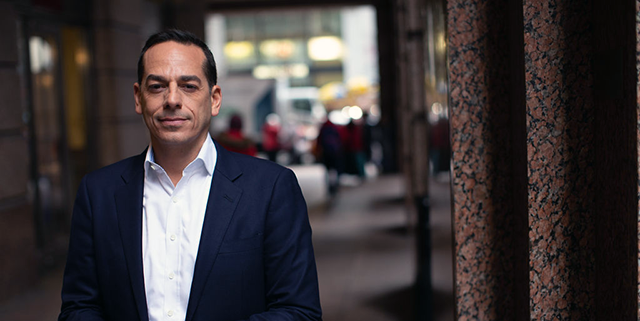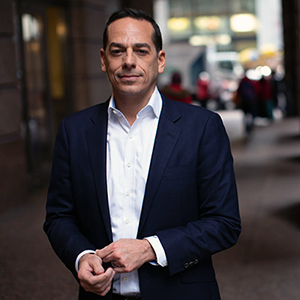
The ad tech industry must break free of third-party cookies to comply with newly enacted privacy laws. The buy side, sell side, and their tech partners are testing different approaches to build a privacy-first advertising ecosystem that reaches the right audiences. Some companies like Ogury are implementing new strategies before full cookie deprecation to keep making strides without missing a step.
It’s the question on everyone’s mind: How can I navigate the cookieless landscape in a way that lets me provide relevant ads to consumers while protecting their privacy? As we collectively prepare for the true end of third-party cookies, it is clear that those who have a preemptive game plan in place to deal with the deprecation of cookies will have an advantage over their peers who do not.
Several strategies are emerging, many of which prioritize users’ first-party data in exchange for something they find valuable, like access to exclusive content. Many are turning to contextual advertising and ID-based solutions to ensure their content reaches the right audience, but what if there could be a truly ID-less solution?
We spoke with Anthony Flaccavento, General Manager Americas for Ogury, an ad tech company focused on privacy-safe targeting of personas rather than specific people, about how the company is tackling the cookieless problem. Flaccavento shared some thoughts about getting prepared to go cookieless (even if Google delays deprecation again), thriving without cookies, and what Ogury sees as the future of successful targeting.
 What Does the End of Third-Party Cookies Mean For Ad Tech?
What Does the End of Third-Party Cookies Mean For Ad Tech?
Kacey Perinelli: Google began testing the end of third-party cookies on Chrome in early January. How has this change affected the industry for the first quarter?
Anthony Flaccavento: Despite several false starts, January marked a long-awaited milestone for third-party cookies, with Google beginning to implement default restrictions for 1% of Chrome users. The ripple effect of this momentous change has spread rapidly across the digital media ecosystem, as brands and agencies realize the window of opportunity to explore viable cookie alternatives is closing.
The projected 2024 timeline to complete the cookie deprecation for all users can still shift. But for those hoping for another postponement on Google’s part, whether cookies disappear from Chrome in 2024 or 2025 doesn’t matter: the privacy wave is unstoppable and began long before Google’s announcement. We’re talking about a decisive turning point in the protection of consumer privacy and a revolution that will reshuffle the cards for an entire sector that is generating growth and jobs. For a player like Ogury, this revolution was anticipated several years ago, to avoid being dependent on a decision like Google’s. Unfortunately, this is not the case for the market as a whole.
KP: The deprecation of third-party cookies marks “a decisive turning point in the protection of consumer privacy.” Can you tell us why?
AF: First of all, we have to recognize that without advertising, there would be no free Internet. Digital advertising is here to stay, and brands will continue to invest massively in it. However, the players operating in this market are facing unprecedented challenges. The end of third-party cookies represents a major technological hurdle, but it is the consequence of a fundamental movement to protect consumer privacy.
This movement started gaining traction in public opinion, particularly in Europe, with the GDPR. Indeed, at the time of its 2018 implementation, many consumers had no real knowledge of the way companies were using their personal data. But today, these same consumers have become increasingly sensitive to the subject. When given a clear choice, more and more users are refusing to give their consent for advertising purposes. This is exactly why we argue that the privacy wave is unstoppable, and is the result of a profound evolution that is both ethical and technological.
Achieving Success While Maintaining Privacy Is Possible
KP: What is your advice to ad tech professionals about thriving in a truly ID-less internet?
AF: In recent years, the industry has been navigating from one trend to the others, with a surge of interest for CTV and AI and fads like the metaverse and NFTs. So, it’s important to understand that this “post-cookie world” is not just another trend, but a groundswell. And it’s no longer possible to postpone this realization.
For advertisers, this means objectively evaluating their current solutions and understanding how to improve them through partners who didn’t wait for Google’s announcement to test and prove the effectiveness of their technologies. As for these technology providers, they urgently need to realize that continuing to use advertising identifiers is not sustainable.
KP: Who will be the winners in this new cookieless world?
AF: The digital advertising ecosystem can be divided into three buckets. First come the walled gardens/GAFAM and big retailers (Walmart, Target), who will continue to grow thanks to their access to first-party data. This explains the rise of Retail Media, which accounts for more than 20% of digital advertising worldwide.
Then, there are the traditional players, who continue to deliver campaigns based on cookies and advertising IDs. Despite preferring this short-term approach, they still represent a significant market share as cookies are still available on Chrome (remember, only 1% of users have switched to cookieless as of January 4) and in-app identifiers are still accessible, especially on Android.
Last but not least comes a third category of players, who have understood that a new generation of technologies, respectful of users’ privacy and independent of cookies and IDs, is essential. Among them is Ogury, who didn’t wait for Google’s announcement or the CPPA to anticipate this shift and provide advertisers and agencies with advertising solutions grounded in privacy by targeting personas, not people.
The Future Is Cookieless
KP: What alternatives do advertising professionals have to replace cookies and IDs?
AF: Several types of technologies have been emerging in recent years, notably solutions based on shared IDs within micro-ecosystems. However, as we have seen, consumers are increasingly reluctant to give their consent for advertising purposes, and it’s unlikely that all industry players will be able to agree on a single standard in this area.
Other solutions, such as contextual targeting, are respectful of privacy but extremely limited in terms of reach. Imagine you are browsing the cycling section of Yahoo Sports and you’re offered an ad for an electric bike. You’ll agree that this type of targeting is fairly basic and limited. An individual has many interests and doesn’t necessarily visit related sites: for example, you might be a fan of hiking or want to buy a new bike without visiting dedicated sites.
KP: Can you tell me more about personified advertising and how it can help achieve successful targeting in a cookieless landscape?
AF: Picture an international brand trying to target 200,000 potential consumers using the limited targeting methods we saw previously. Advertisers are understandably concerned about the disappearance of identifiers. However, there are technologies available to counter these limitations. This is what we have developed with personified advertising, which targets personas, rather than users’ identities, on the destinations where they consume content – instead of the individual users themselves. This unique data model, based on several proprietary data sources, including surveys distributed directly to consumers via a network of publisher partners, enables relevant targeting at scale without relying on advertising trackers such as cookies. This is something we have been doing for several years now, long before Google’s decision.
__
About Anthony Flaccavento
Anthony is a seasoned ad-tech and media executive who serves as General Manager, Americas for Ogury, the leader in advertising solutions fueled by exclusive data and grounded in privacy. A vital member of the Executive Committee, he reports directly to the CEO. He focuses on leading Ogury’s best-in-class sales organization, driving business across the Americas, and increasing value for its partners as it enters its next level of growth. Before joining Ogury, Anthony spent 11 years in various sales executive positions, most recently as Chief Revenue Officer at dynamic CTV and all-screen video solutions company Tremor Video (now Nexxen Nasdaq: NEXN). He also worked for high-profile consumer media brands such as entertainment company Complex Media and periodicals MAXIM Magazine and Athlon Media.
About Ogury
Ogury is a global adtech company that delivers Personified Advertising solutions grounded in privacy to brands, agencies and publishers by focusing on targeting personas, not people. They deliver relevant audiences at scale and on quality publisher inventory thanks to our exclusive data, which is meticulously collected and crafted from millions of self-declared customer surveys, enriched with billions of impactful data points, and refined by AI. This results in audience insights and performance not available through any other adtech platform. Founded in 2014, Ogury is a global organization with a diverse team of 500+ people across 17 countries